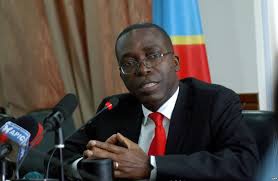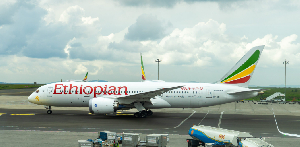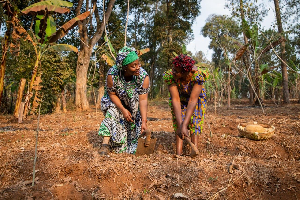Augustin Matata Ponyo Mapon, the Prime Minister of the Democratic Republic of Congo (DR Congo), has urged African countries to practice good governance and show strong leadership to reduce poverty on the continent.
Addressing the Legon Shared Prosperity Forum, organised by the World Bank in commemoration of the End Poverty Day, at the University of Ghana, Mr. Mapon said to end poverty on the continent, there should be sound economic reforms that would ensure wealth creation.
Drawing on the success of the DR Congo in sustaining economic growth amidst the general decline in growth rates on the continent, he noted that the DRC had followed a very rigorous leadership programme to control expenditures and reduce inflation, while stabilising its macro economy.
“This has called for difficult and sometimes unpopular reforms, which are only implemented with the support of the President of the DR Congo,”he said. “One such landmark reform require that all salaries paid by the government to civil servants be done through a commercial bank.”
This, he said, enabled the country to save about $10million per month by eliminating ghost workers and a lot of fraud in the payment of salaries to civil servants.
He stated that all the efforts invested in good governance had bore fruits in terms of growth rates, which contradicted the ‘Phillips Curve’ economic theory, which states, ‘When inflation goes down, normally there should also be significant drop in economic growth.’
He explained, “The Phillips curve was not seen in the case of the DRC. Actually as the inflation rate came down significantly, there was economic growth and this was worthy of case studies by academicians,” he said.
“In 2014, DRC achieved a growth rate of 9.5 percent with an inflation rate of one percent only”.
The country’s efforts were also rewarded in 2014, when the International Monetary Fund (IMF) ranked it the third most dynamic economy in the world in 2014.
The DRC Prime Minister emphasised that the stability of the macroeconomic environment was the bedrock and the foundation for economic growth, since macroeconomic stability was the best way to protect revenues of the most vulnerable in African countries.
“Economic reforms are a must, you cannot do without it,” Mr Mapon stated. “This is the surest way to ensure that wealth is, indeed, created on the continent.
The DR Congo’s internal revenue rose to 14.4 per cent of its Gross Domestic Product (GDP) in 2014, up from 0.3 percent in 2000.
According to him, those reforms had led to an economic growth that had been sustainable and enabled the country to make significant investments in social sectors like education, health and food security.
He said the percentage of poverty had been reduced from 85 per cent in 1990 to 63.4 percent in 2012.
Enrollment in primary education moved from 51.7 per cent in 2001 to more than 80 per cent in 2013, while gender parity was approximately 0.9 in primary education, 0.6 per cent at the secondary level and 0.4 per cent at the tertiary level.
He emphasised that poverty reduction was achievable for every African country but required good governance, discipline and a lot of courage.
“Good governance should not be imposed by the IMF, World Bank and African Development Bank,” he stated, to a loud applause, explaining that it was usually the least travelled paths that made the difference.
According the World Bank’s “Poverty in a rising Africa; Africa Poverty Report,” which was launched at the forum, although the share of African population in extreme poverty did decline in the last two decades; dropping from 56 per cent in 1990 to 43 per cent in 2012, population expansion meant that the number of people living in extreme poverty still increased by more than 100 million.
It is also projected that the world’s extreme poor would be increasingly concentrated in Africa.
Business News of Tuesday, 20 October 2015
Source: GNA
Good governance and strong leadership will reduce poverty
 Augustin Matata Ponyo Mapon, the Prime Minister of the Democratic Republic of Congo (DR Congo)
Augustin Matata Ponyo Mapon, the Prime Minister of the Democratic Republic of Congo (DR Congo)












